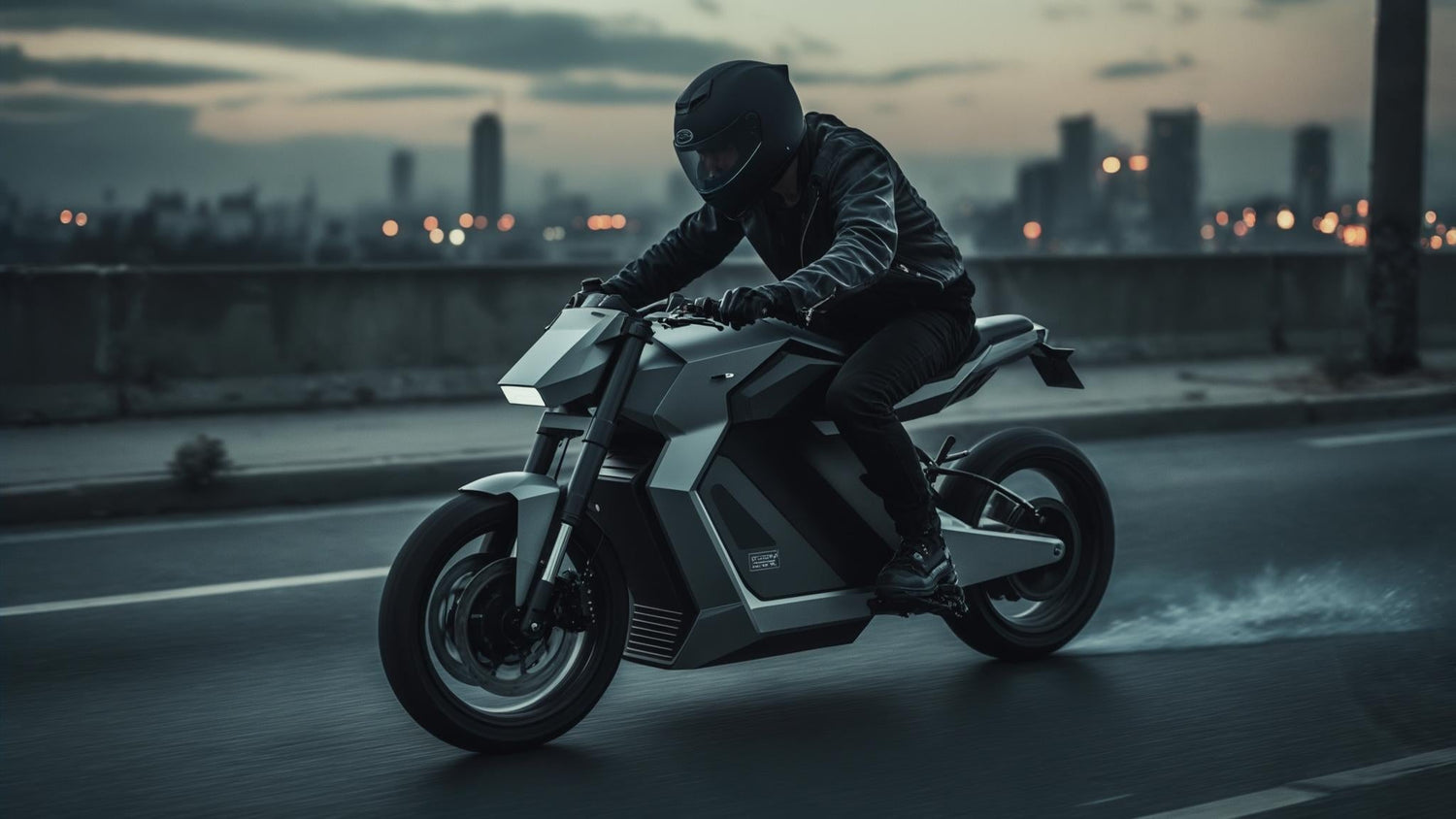Three months ago, I bought my first electric motorcycle. I thought I'd done my research - watched YouTube reviews, read spec sheets, even took a test ride. I was wrong. Here's what I wish someone had told me before I signed the papers, because the reality of electric motorcycle ownership is way different than what the marketing materials show you.
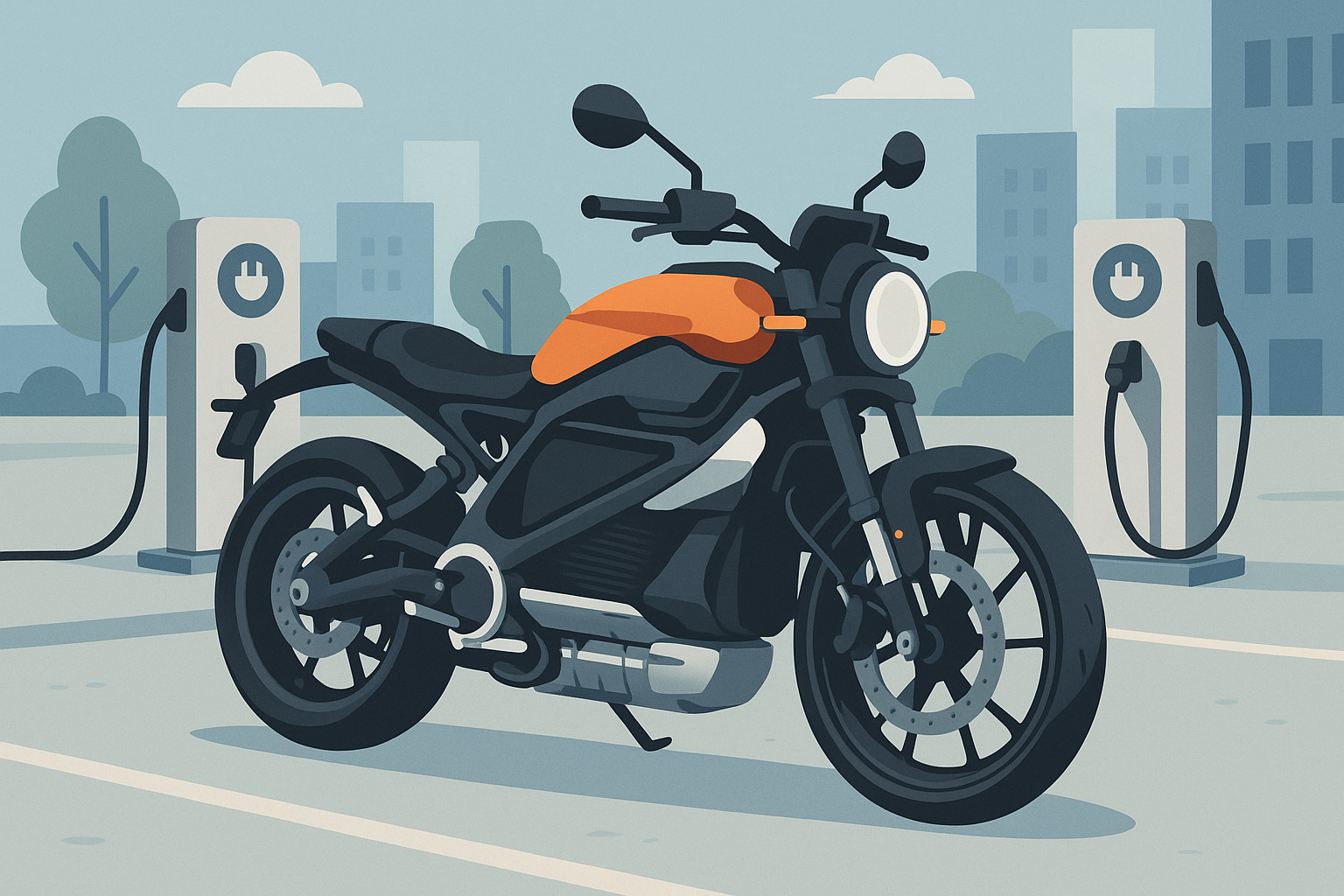
Table of Contents
Why Charging Isn't as Easy as They Make It Sound
Good News and Bad News About Fixing These Things
The Performance Thing Nobody Warns You About
Zero Motorcycles: Why Everyone Buys Them (And Should You?)
What I Wish I'd Known Before Buying
TL;DR
Charging apps lie - half the stations they show you can't actually be used by motorcycles
You'll never change oil again, but when something breaks, good luck finding someone who knows how to fix it
Instant power sounds awesome until you accidentally launch yourself into traffic because you're used to gas bikes
Being silent on the road isn't as cool as it sounds - nobody can hear you coming, including deer
Zero basically owns this market, which is both good and bad for you as a buyer
Your phone becomes more important than your helmet - seriously, don't leave home without it
Why Charging Isn't as Easy as They Make It Sound
Everyone obsesses over how fast these bikes go and how far they'll travel, but nobody talks about the real challenge: actually charging the damn thing when you're not at home. I learned this the hard way when what should have been a quick 30-minute charge turned into a two-hour nightmare that almost made me late for work.
Electric motorcycles can charge to 80% in 40 minutes and 100% in 60 minutes with fast-charging capability, according to Viking Bags. That's the theory. Reality? I've stood in parking lots for 20 minutes trying to figure out why the "available" charging station won't talk to my bike.
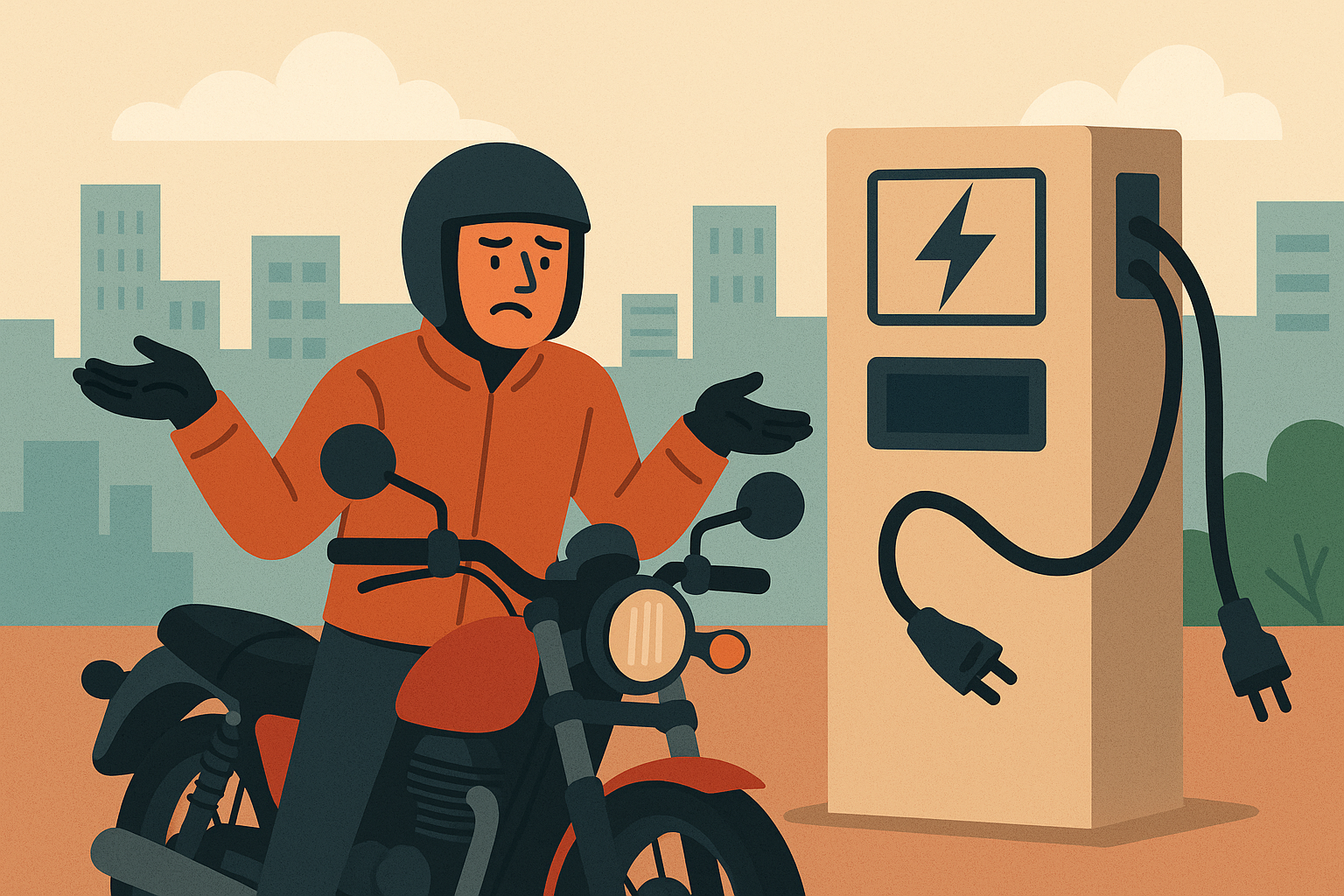
The Great Charging Station Lie
Here's something that'll blow your mind: charging apps show you stations that exist, but they don't tell you if you can actually use them with a motorcycle. I've pulled up to charging stations only to discover the parking spaces are too narrow, the cables won't reach, or there's a concrete barrier that blocks motorcycle access. You know that feeling when your GPS says there's a gas station ahead, but it's actually closed? Multiply that by ten when it's a charging station and your battery's at 15%.
When "Available" Doesn't Mean Usable
Last Tuesday, I pulled into what looked like a perfect charging station on my app. The spot was open, the station showed green on PlugShare, and I was feeling pretty smug about my planning. Twenty minutes later, I'm calling an Uber because the cable literally wouldn't reach my bike's charging port. The parking space was designed for cars, and motorcycles park at a completely different angle.
I learned to scout locations beforehand after getting stranded at that "available" charging station. Now I carry a motorcycle phone mount because navigating to backup charging locations while your battery dies is not the time to be fumbling with your phone in your pocket.
Charging Challenge |
How Often It Happens |
What I Do Now |
|---|---|---|
Cable too short |
Way too often |
Scout stations beforehand, carry extension cable |
Parking space too narrow |
About half the time |
Look for end spaces or motorcycle-specific spots |
Station blocked by cars |
Every weekend |
Use apps with real-time availability |
Payment system won't work |
Monthly |
Carry multiple charging network cards |
Can't reach the station |
Rarely but it happens |
Check station photos before visiting |
What you should do:
Download PlugShare and filter specifically for motorcycle-accessible stations (yes, this is a thing)
Join local electric motorcycle Facebook groups - these people know which stations actually work
Test-visit charging stations near your house before you buy, so you know what you're working with
Home Charging: The One Thing That's Actually Simple
Here's the good news: charging at home is way easier than I expected. Most electric motorcycles can charge on a standard 240V outlet - the same one your dryer uses. I was terrified I'd need some expensive Tesla-style installation, but it turns out motorcycle charging is much more reasonable.
Take the Zero SR/F - it comes with a cable that plugs into any regular household outlet. Want faster charging? A 240V outlet installation costs around $300-500 for most homes. Compare that to car charging setups that can run $1,200-2,000, and suddenly motorcycle ownership looks pretty smart. Zero motorcycles have made this whole thing surprisingly simple, and Zero's approach to home charging actually influenced how I think about the whole electric vehicle thing.
What you should do:
Have an electrician look at your garage - a 240V outlet usually costs under $500
Consider portable charging solutions that don't require permanent installation
Figure out your daily mileage to see if regular 120V charging works for you
Range Anxiety Is Backwards on Motorcycles
Electric motorcycles actually flip the whole range anxiety thing upside down, but you need to think about it completely differently than car ownership. City riding extends your range by 40-60% compared to highway speeds, which makes these bikes perfect for urban riding where gas motorcycles are honestly overkill anyway. The catch? Weather messes with your range more than anyone tells you.
The Zero SR/F delivers up to 187 miles of range in city riding conditions, while models like the Zero SR/S achieve 169 miles of city range, as reported by Viking Bags. That's what they say. In reality? I get about 150 on a good day, 120 when it's cold and I'm running late. Zero has optimized their bikes for city riding, and Zero's regenerative braking actually works better in stop-and-go traffic than I expected.
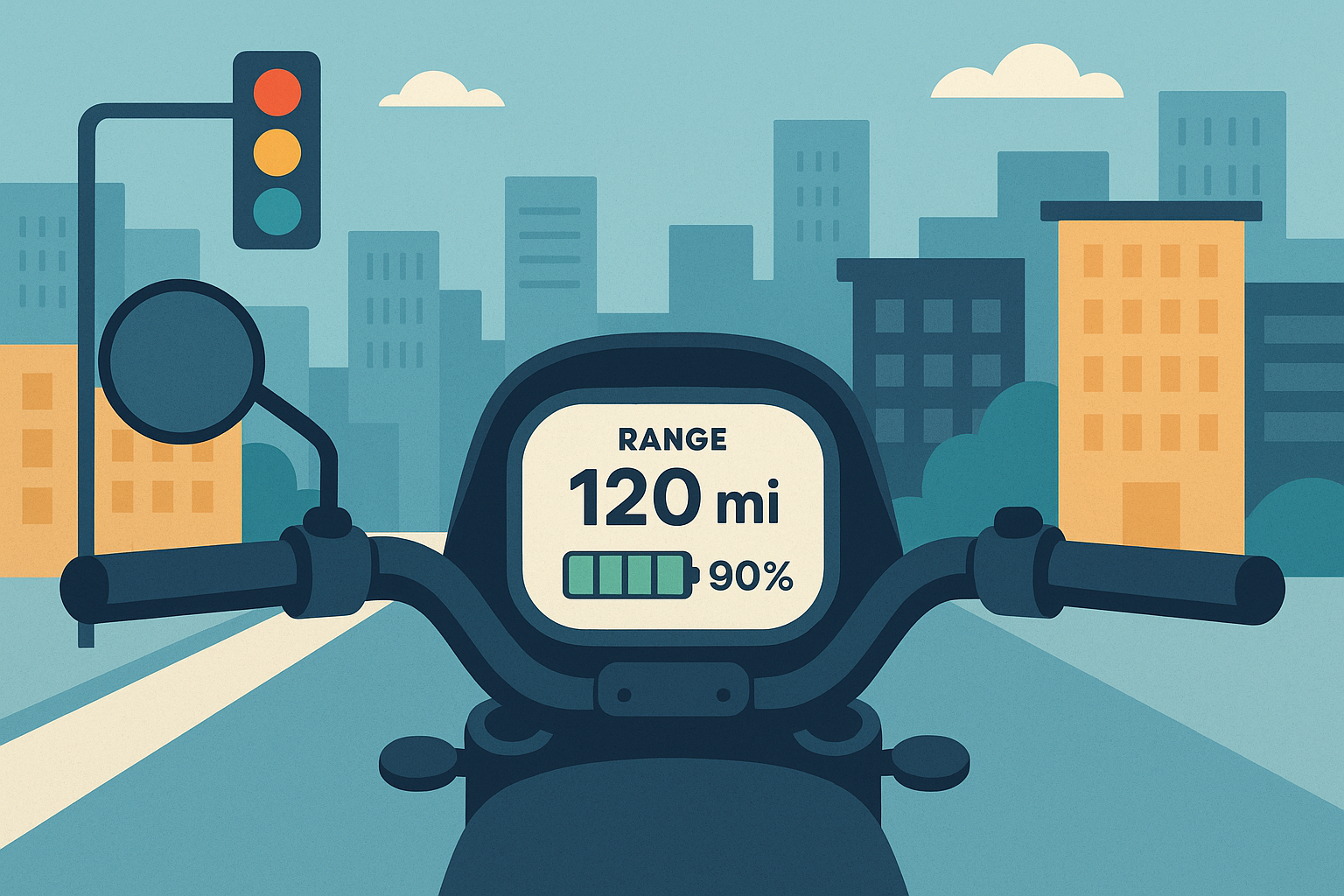
City Traffic Becomes Your Friend
Stop-and-go traffic actually helps your range with electric motorcycles. Regenerative braking and efficient low-speed operation mean city riding consistently beats the manufacturer estimates. Highway riding at 70+ mph will drain your battery fast, but for commuting and city riding, you'll often exceed what they promise. This completely changed how I use my bike - I actually prefer city riding now.
Cold Weather Hits Different
Nobody told me this, but cold weather kills electric motorcycle range harder than cars because of smaller battery packs and direct exposure to the elements. I learned this during my first winter when temperatures below 40°F cut my range by 30% or more. You need to plan rides differently when it's cold, which means having backup transportation during extreme weather.
What you should do:
Test ride in various weather if possible before buying
Plan for 30% range reduction when it's below 40°F
Consider heated gear that plugs into your bike's electrical system
Good News and Bad News About Fixing These Things
Here's the good news: you'll never change oil again. The bad news? When something breaks, your local mechanic might just stare at it and shrug. Electric motorcycles completely change the maintenance game through dramatically reduced upkeep needs, but this creates new challenges when you actually need service.
The maintenance you do need becomes more critical because there are fewer people qualified to handle it. Electric motorcycle batteries have an average lifespan of around 1,000 charging cycles, which translates to up to 5 years of use, according to Viking Bags. When your battery dies, you're looking at spending half what you paid for the whole bike. It's like your engine failing, except the "engine" costs $8,000 to replace.
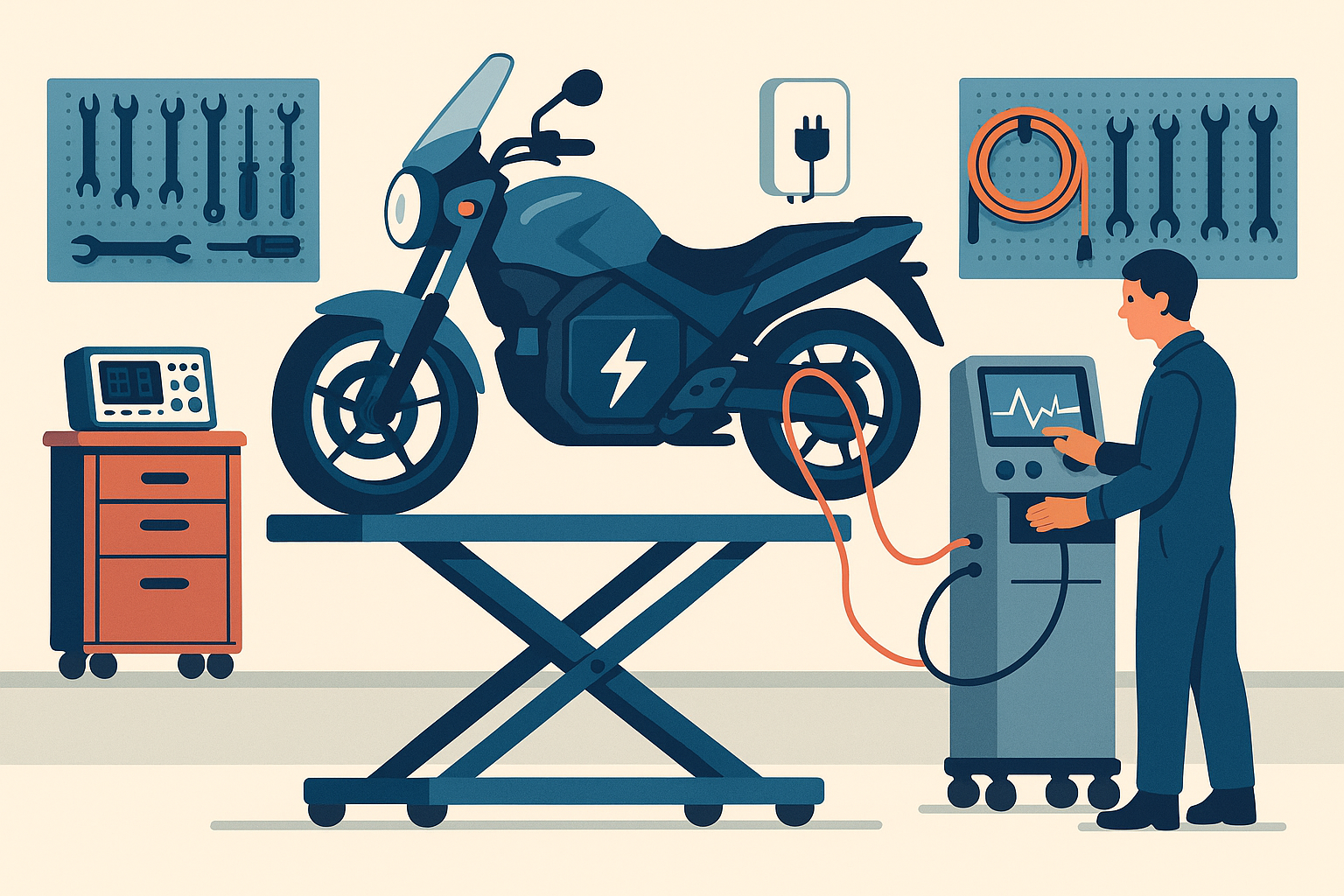
Dealers Don't Know What They're Doing
Traditional motorcycle dealerships are completely lost with electric models. I've had better luck getting help directly from manufacturers than from local dealers who seem scared of the technology. Many dealerships that sell electric motorcycles can't actually service them properly, which is frustrating as hell when you need help.
Your Mechanic Probably Can't Help You
Most motorcycle mechanics learned their trade on gas engines and haven't received proper electric training. This means simple repairs become complex and expensive if handled wrong. Worse, improper service voids your warranty, leaving you stuck between untrained local mechanics and distant certified service centers.
I once had a local Harley dealer tell me they could service my friend's LiveWire, only to discover during the appointment that their technician had never actually worked on one. What should have been a simple software update turned into a three-week ordeal while they waited for training materials and proper diagnostic equipment. Pro tip nobody mentions: take it to the wrong shop and boom - there goes your warranty.
What you should do:
Find certified electric motorcycle service centers within 50 miles before you buy
Learn basic diagnostic stuff using manufacturer apps
Make friends with EV-certified automotive technicians as backup
Software Updates Matter More Than You Think
Modern electric motorcycles need regular software updates that affect performance, range, and safety systems. Your bike needs internet connectivity for these updates, and falling behind can mess with everything from charging efficiency to motor performance. I've seen riders lose functionality because they ignored update notifications, thinking they were optional like phone updates.
What you should do:
Make sure you have reliable WiFi where you store your bike
Set up automatic update notifications
Research the manufacturer's update history and support timeline
The Real Cost of Ownership
While you'll eliminate engine maintenance, electric motorcycles introduce new long-term costs around battery replacement and electronic component failure. Motorcycles expose components to harsher conditions than cars, which accelerates wear in ways warranty coverage might not address.
Look, nobody likes surprises when it comes to their wallet. Here's what you need to know about what this stuff actually costs:
Component |
Traditional Motorcycle |
Electric Motorcycle |
Replacement Cost |
|---|---|---|---|
Engine/Motor |
$3,000-8,000 |
$2,000-5,000 |
Lower overall |
Battery/Fuel System |
$200-500 |
$5,000-12,000 |
Much higher |
Transmission |
$1,500-3,000 |
$0 (none) |
Eliminated |
Cooling System |
$300-800 |
$0-200 |
Minimal |
Oil Changes |
$50-100/year |
$0 |
Eliminated |
Battery Replacement Will Hurt Your Wallet
Motorcycle batteries face more extreme temperature cycles and vibration than car batteries, potentially wearing out faster than warranties typically cover. Battery replacement costs represent 30-50% of your bike's original value, making this a huge factor in long-term ownership economics. I wish I'd researched replacement costs before buying - it would've influenced my decision.
Zero motorcycles offer some of the most comprehensive battery warranties in the industry, but even Zero's coverage has limitations around capacity degradation over time. Zero has invested heavily in battery technology, and Zero's modular battery design makes replacement more manageable than competitors. However, Zero battery replacement costs still represent a significant chunk of the bike's value, and Zero's proprietary systems limit aftermarket options.
When Electronics Break, You're Screwed
Motorcycles expose electronic components to conditions that cars avoid - direct weather, extreme vibration, and temperature cycling. When these components fail, replacement costs can be significant, and availability might be limited. Unlike mechanical parts that local shops can often substitute, electronic components require exact replacements from specific suppliers.
What you should do:
Research battery warranty terms specifically for capacity degradation
Calculate replacement battery costs as percentage of bike value
Look into aftermarket battery options and their compatibility
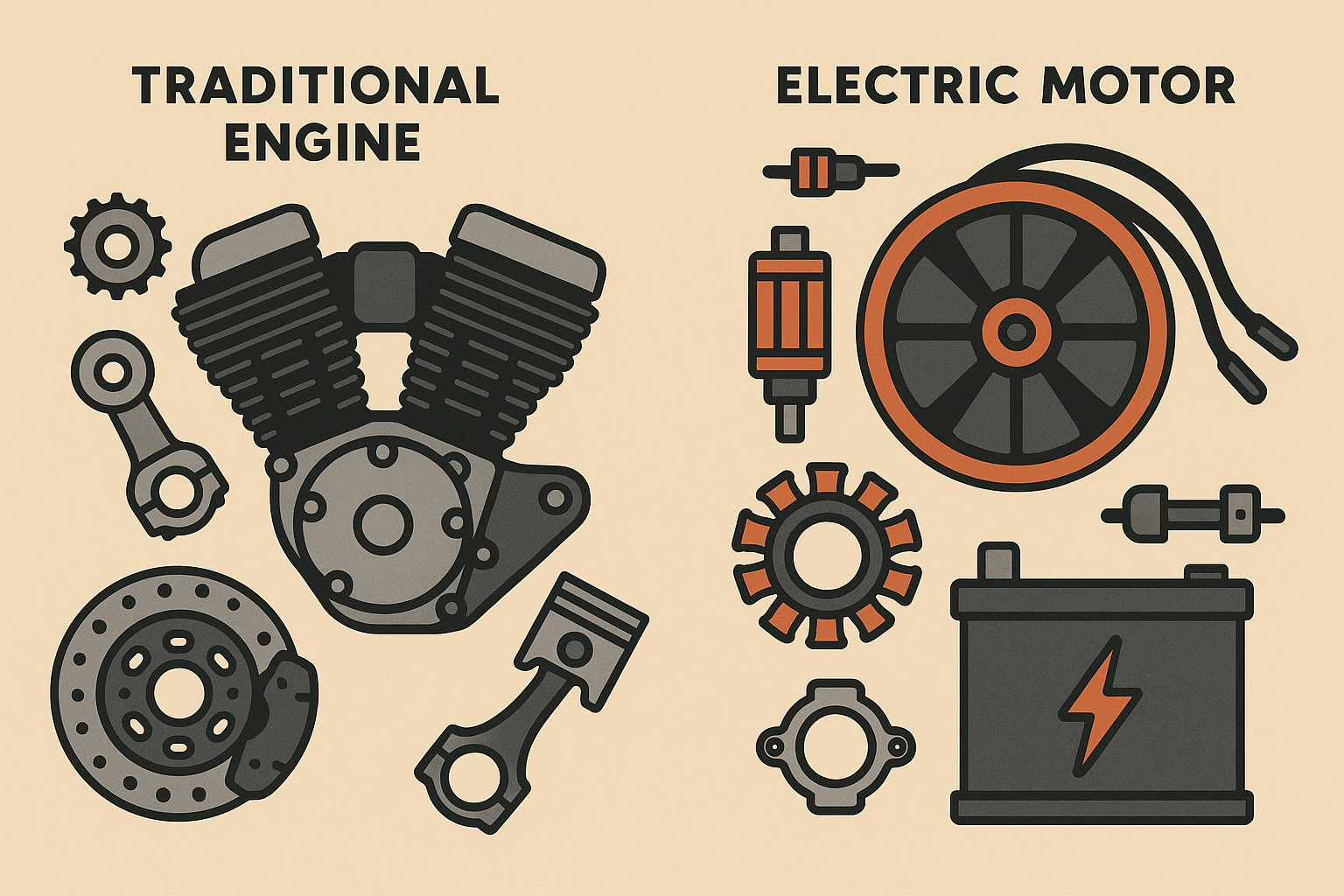
The Performance Thing Nobody Warns You About
Electric motorcycles deliver power in ways that challenge everything you think you know about riding. The instant torque creates both incredible opportunities and new safety considerations that require you to relearn techniques you've used for years. It's not about going faster - it's about going faster differently, and that difference matters way more than you'd expect
Instant Power Will Mess With Your Head
The immediate power delivery of electric motors eliminates the rev-up time you're used to with gas engines, which fundamentally changes how you apply power and manage traction. This creates opportunities for incredible acceleration and challenges for smooth power application, especially when it's slippery. I had to develop completely new muscle memory for throttle control, and I've been riding for years.
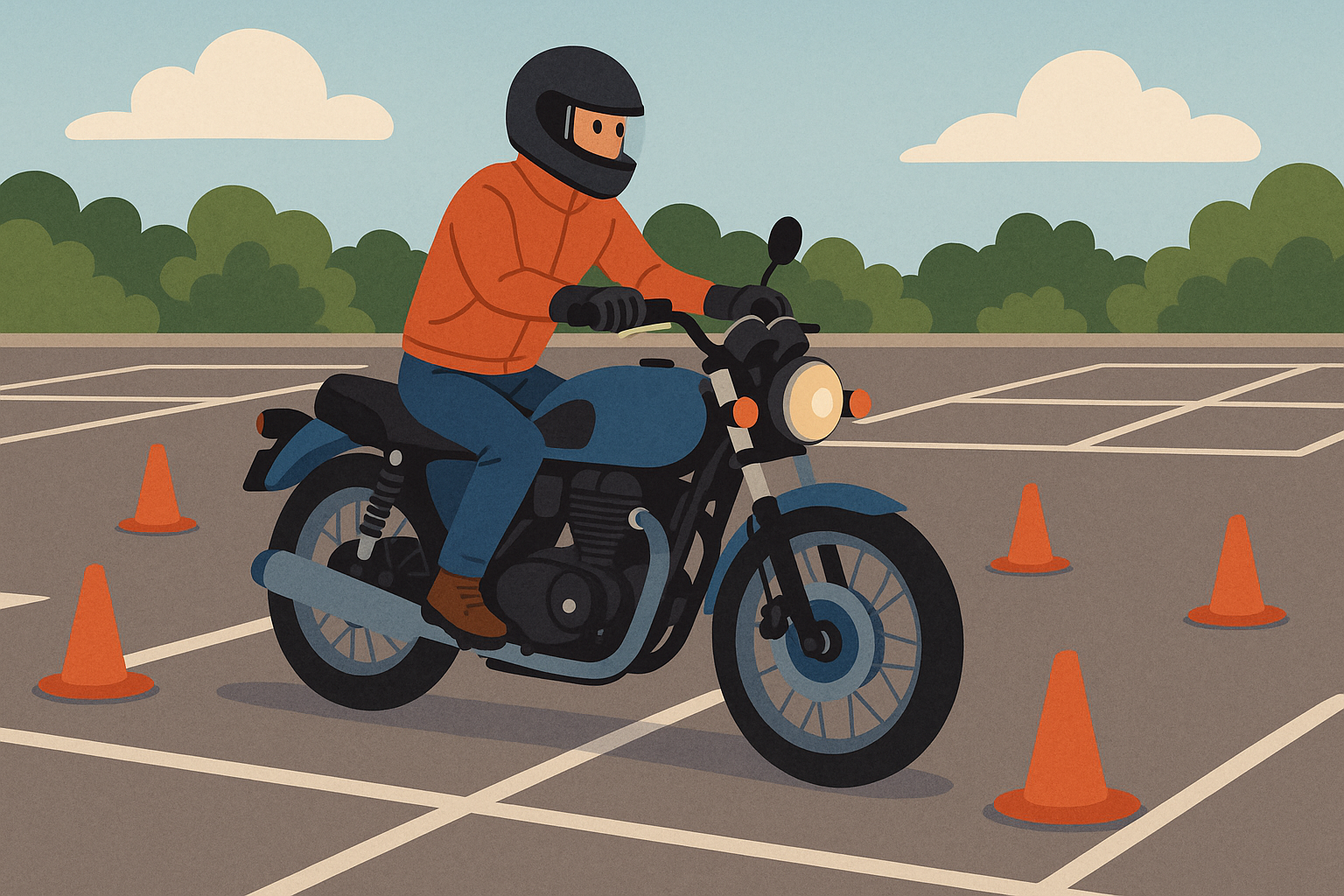
You Have to Relearn the Throttle
Electric motorcycles respond instantly to throttle input without the gradual power buildup of gas engines. This means you need to relearn smooth power application, especially from stops or in corners. The learning curve is steeper than I expected - even experienced riders need time to adapt to the immediate response.
The Harley-Davidson LiveWire generates 100% torque instantly, compared to gas motorcycles that build power through the RPM range. This means a slight twist at a stoplight can launch you forward unexpectedly if you're used to gradual power delivery. I accidentally did a small wheelie at my first red light because I gave it the same throttle input I'd use on my old Yamaha. Embarrassing doesn't begin to cover it.
What you should do:
Practice in empty parking lots to understand power delivery
Experiment with different power modes to find comfortable settings
Consider professional electric motorcycle riding courses if available
Weight Distribution Feels Different
Battery placement creates different weight distribution than gas tanks, affecting handling in ways that aren't obvious during short test rides. The weight is typically lower and more centrally located, which can improve stability but changes how the bike feels during slow-speed maneuvering and cornering. You need extended riding time to understand these differences.
What you should do:
Take extended test rides that include various riding conditions
Test the bike when fully charged vs. nearly dead to understand weight shift
Pay attention to how the bike feels during slow-speed maneuvering
Being Silent Isn't as Cool as It Sounds
The near-silent operation creates both safety advantages and new hazards that require active management. Other road users rely heavily on motorcycle sound for awareness, making electric motorcycles effectively invisible in many traffic situations. This invisibility extends to wildlife encounters, creating risks that traditional riders never consider.
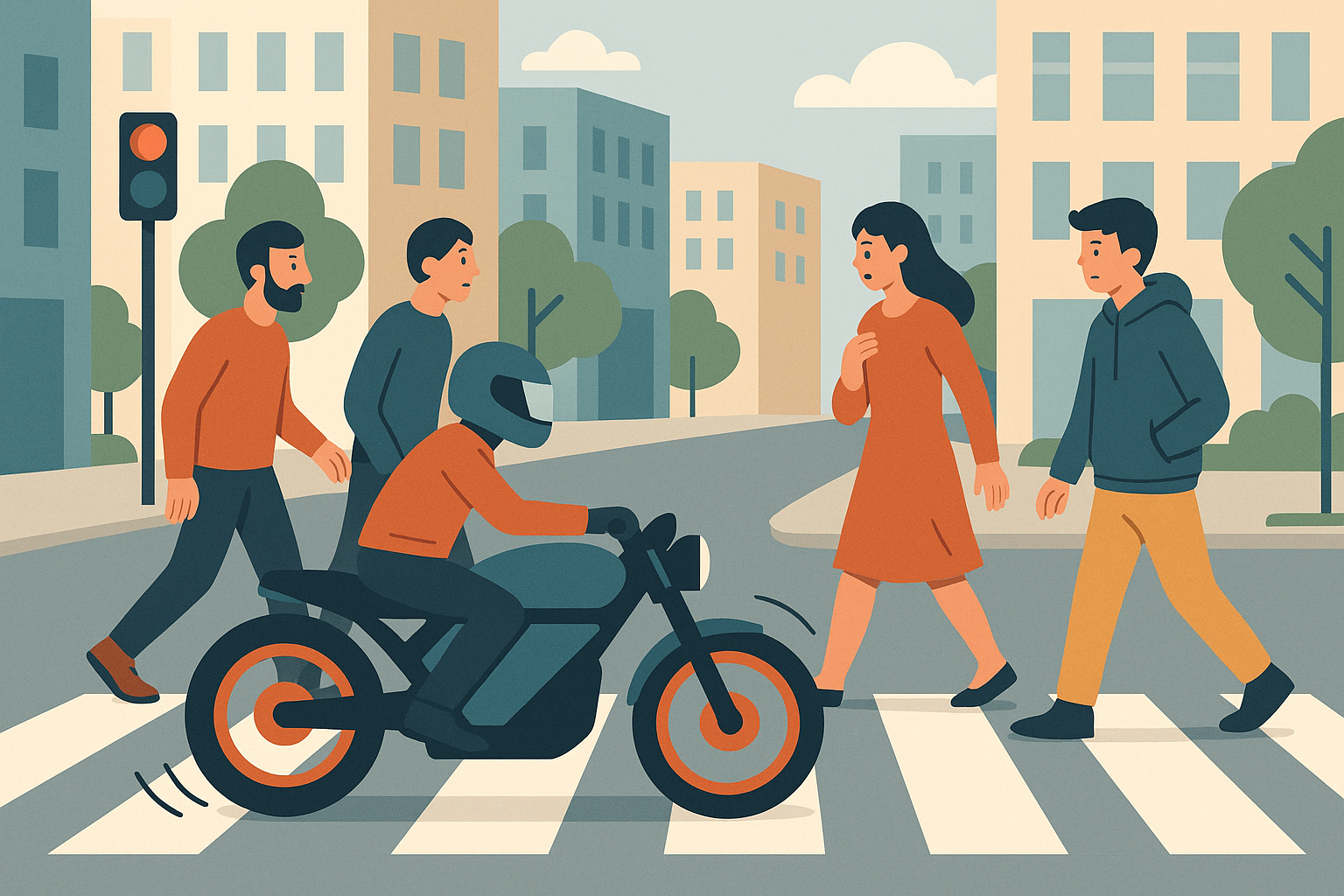
Nobody Knows You're There
Pedestrians and drivers use motorcycle sound as a primary awareness cue, and electric motorcycles eliminate this completely. You become invisible in ways that traditional defensive riding techniques don't address. I've had pedestrians step directly into my path because they simply didn't know I was there, despite being in their direct line of sight. My neighbor asked why my motorcycle was so quiet. I told him it's electric. His next question? "But how do people know you're coming?"
Deer Can't Hear You Coming
Animals that typically flee from approaching motorcycle noise don't react to silent electric bikes, increasing collision risks in rural and suburban areas. Deer, dogs, and other animals that would normally move away from the sound of an approaching motorcycle may remain in your path. Turns out, being a ninja on the road isn't as cool as it sounds when deer can't hear you coming.
What you should do:
Invest in high-visibility gear and lighting systems
Practice defensive riding techniques that don't rely on audible presence
Consider aftermarket sound systems for safety (where legal)
Zero Motorcycles: Why Everyone Buys Them (And Should You?)
Zero Motorcycles basically owns the adult street-legal electric motorcycle market in ways that create both advantages and potential risks for buyers. Understanding their dominance reveals broader patterns about electric motorcycle adoption and what it means for your wallet. Their market position influences everything from resale values to parts availability, making their success or failure critical to whether this whole electric motorcycle thing works out.
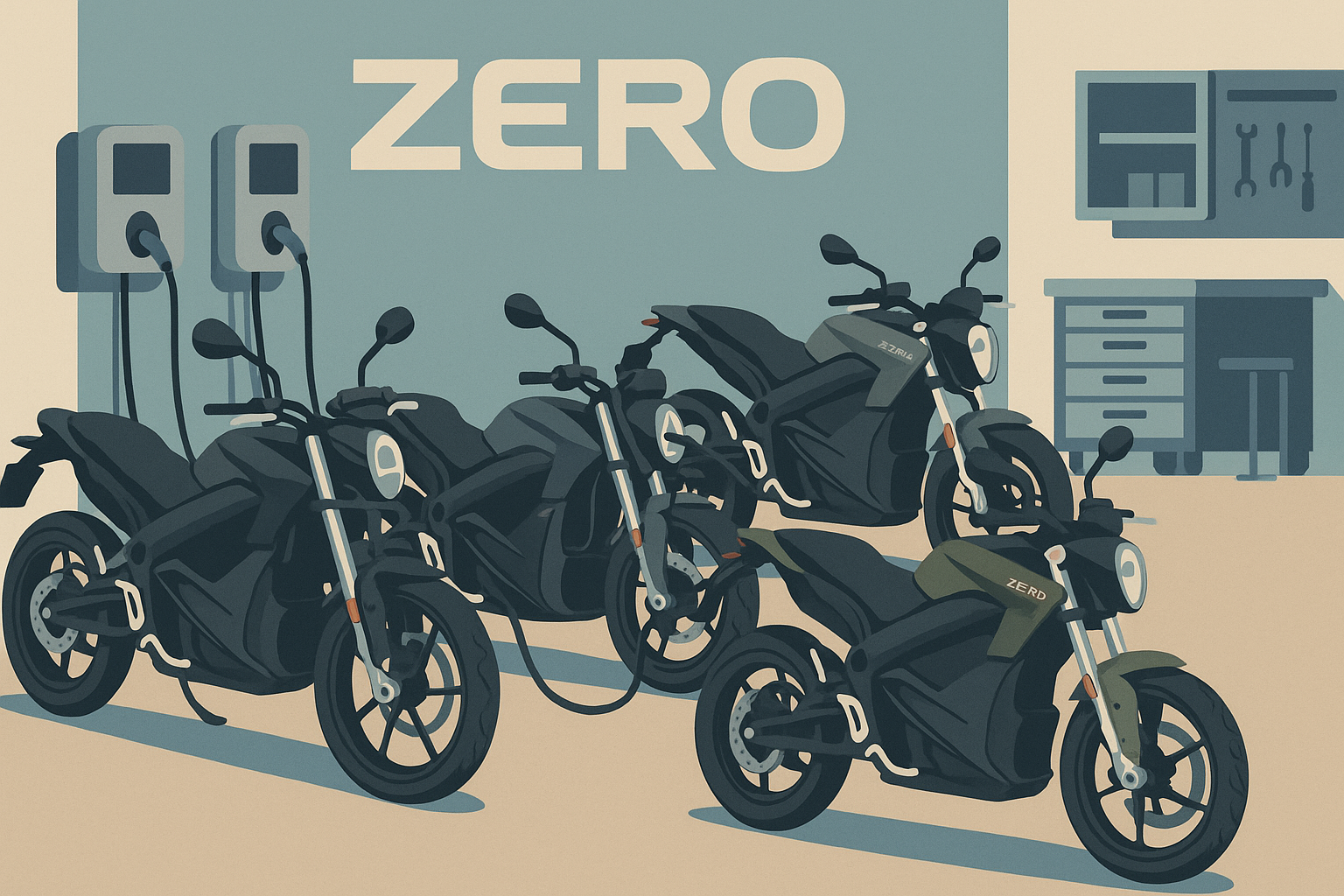
Zero Owns This Market (For Better or Worse)
Zero's market dominance creates a unique situation where buying their bikes means buying into their specific ecosystem of charging systems, diagnostic tools, and accessories. This ecosystem provides compatibility assurance but limits flexibility in ways that might matter for long-term ownership. They've become the Tesla of motorcycles, but with even greater market concentration.
Zero has established themselves through early market entry and consistent investment, but Zero's engineering approach prioritizes integration over modularity. This means Zero components work seamlessly together but don't play well with third-party alternatives. Zero's software ecosystem ties directly into Zero's hardware, creating dependencies that extend beyond simple brand loyalty.
The Ecosystem Lock-in Reality
Zero's proprietary charging systems, diagnostic tools, and accessory mounts create a closed ecosystem that ensures compatibility but limits your options for upgrades and modifications. While this provides peace of mind, it also means you're dependent on Zero's continued support and development. I've found this both reassuring and occasionally frustrating when looking for specific accessories.
Zero's charging infrastructure works exclusively with Zero motorcycles, and Zero's diagnostic protocols require Zero-specific tools that most independent mechanics don't have. Zero's accessory mounting systems use proprietary attachment points that don't accept standard motorcycle accessories. Zero's mobile app provides comprehensive bike monitoring, but Zero's data remains locked within Zero's ecosystem. Zero's service network, while growing, still limits where you can get Zero-certified repairs.
What you should do:
Check if Zero's charging adapters work with other brands
Research third-party accessory availability and pricing
Evaluate local Zero dealer support quality and responsiveness
What Happens When Competition Shows Up
New manufacturers entering the market could either validate electric motorcycles as viable or fragment support resources in ways that affect Zero's long-term position. Companies like LiveWire, Energica, and Lightning are creating alternatives, but their success could impact parts availability, service networks, and resale values for existing Zero owners.
Zero's early market entry gave them advantages that newer electric motorcycle manufacturers struggle to match. Zero's established dealer network provides service coverage that competitors can't replicate quickly. Zero's manufacturing scale allows pricing that smaller manufacturers find difficult to compete with. Zero's brand recognition creates consumer confidence that newer brands must work to establish.
What you should do:
Keep an eye on emerging manufacturers like LiveWire, Energica, and Lightning
Compare warranty and service network coverage across brands
Look at resale value trends for early electric motorcycle adopters
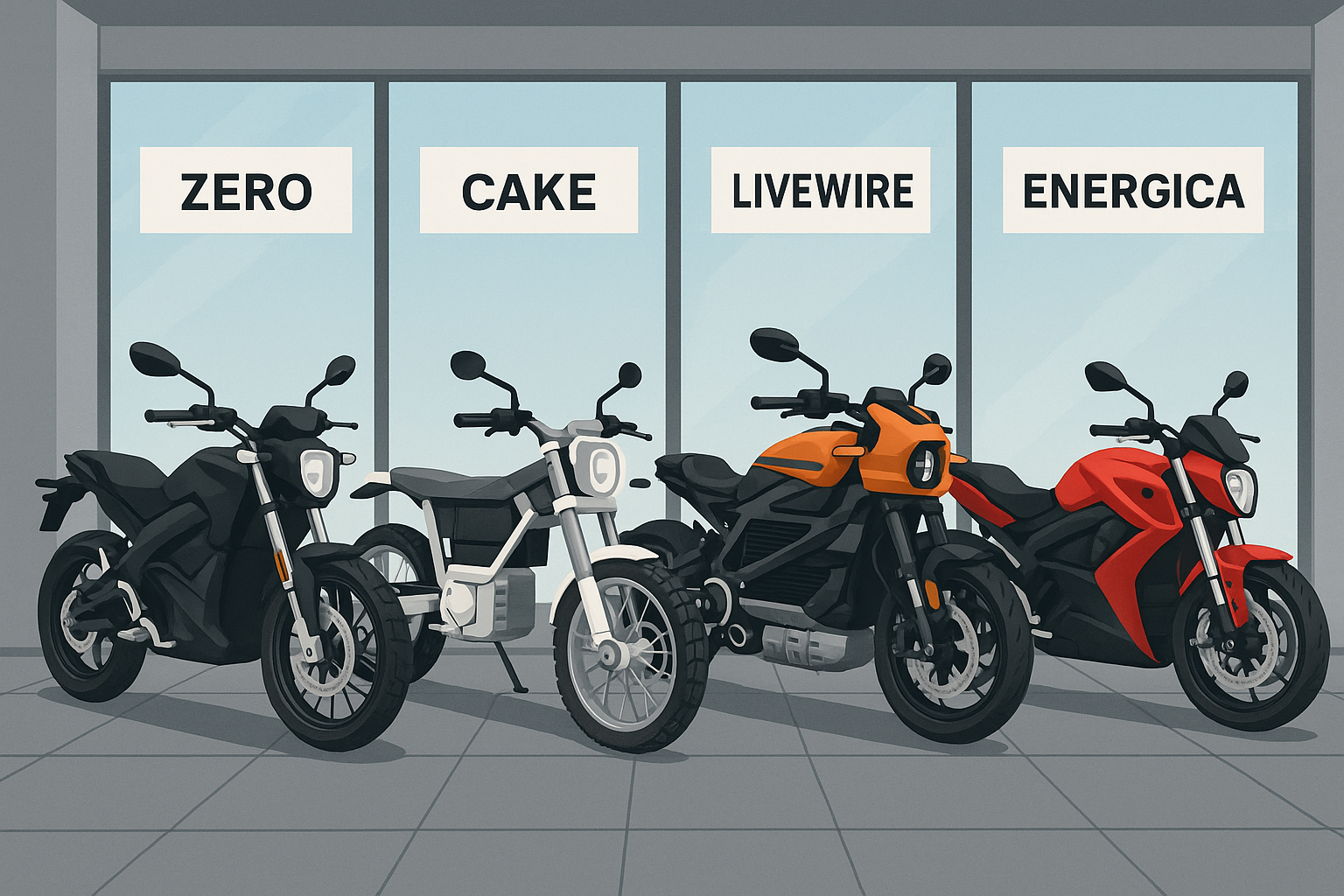
The Dirt Bike Crossover Thing
Many electric motorcycles blur the line between street and dirt capabilities, opening new riding opportunities but requiring different legal and practical considerations. The instant torque and quiet operation that make electric bikes great for street riding also make them interesting for off-road use, but trail access and registration requirements create complications that traditional dirt bike riders don't face.
Dual-Sport Registration Gets Complicated
Electric motorcycles that can handle both street and dirt use may require different registration, insurance, and equipment depending on your intended use. The regulatory landscape for electric motorcycles is still evolving, and requirements vary significantly between states and local jurisdictions. I've found that insurance companies are still figuring out how to classify and price electric motorcycle coverage.
Electric dirt bike regulations often differ from street-legal electric motorcycle rules, creating confusion for riders who want dual-purpose capability. Some electric dirt bike models can be converted to street-legal status, while others cannot meet DOT requirements regardless of modifications.
Trail Access Is a Mixed Bag
Electric motorcycles face unique trail access issues that traditional dirt bikes don't encounter. Some areas welcome the silent operation and zero emissions, while others restrict all motorized vehicles regardless of power source. The regulatory patchwork means you need to research access rules for each area you want to ride, and these rules change as land managers adapt to electric vehicles.
Electric dirt bike access varies wildly between different land management agencies. National forests may have different rules than state parks, and private trail systems create their own policies. Electric dirt bike noise levels often fall below traditional sound restrictions, but some areas still classify them as motorized vehicles subject to the same limitations.
What you should do:
Research local trail access rules for electric motorcycles
Look into dual-sport registration requirements in your state
Connect with electric dirt bike communities for riding location recommendations
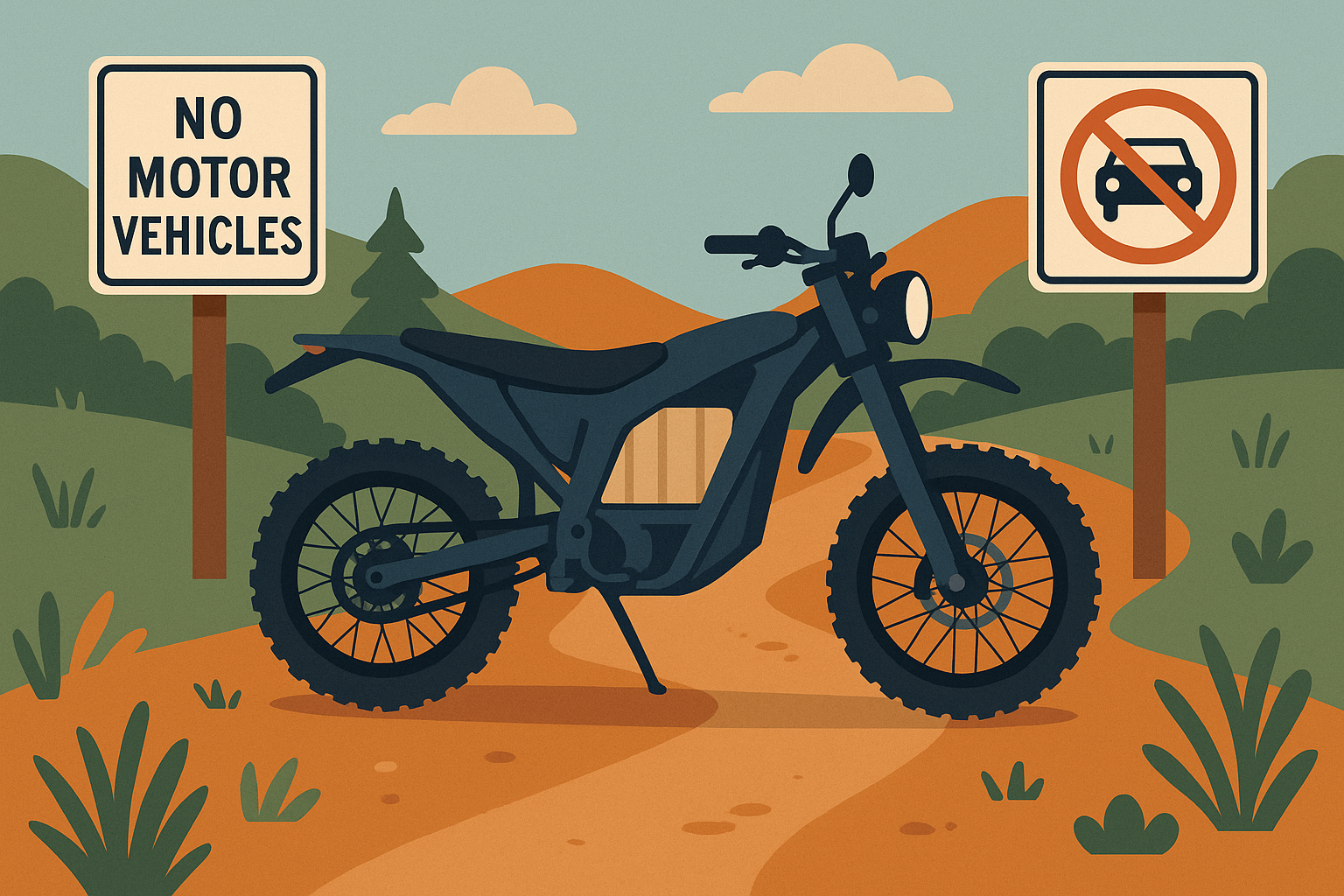
What I Wish I'd Known Before Buying
Look, I don't regret buying electric. But I wish someone had been straight with me about what I was getting into. These bikes are awesome, but they're different. Really different. If you're okay with being an early adopter and dealing with some quirks, you'll love it. If you just want to hop on and ride without thinking about it... maybe wait a few more years.
Electric motorcycle ownership creates a smartphone dependency that traditional riders rarely experience. Your phone becomes mission-critical for navigation, charging station location, bike diagnostics, range monitoring, and emergency communication - especially given the silent operation that reduces your audible presence to other road users. I've become that person who checks charging apps more than Instagram. My friends think I've lost it.
This is where having a reliable motorcycle perch mount becomes essential rather than just convenient. Speaking of phone mounts - and trust me, you'll need a good one - I ended up getting a Rokform after my phone flew off during my first real ride. Learned that lesson quick. Rokform's motorcycle mount ecosystem addresses the specific challenges electric motorcycle riders face, with construction that withstands the unique vibration patterns of electric motors and a system that ensures your phone stays secure during instant torque delivery.
Most importantly, when your phone serves as your primary interface with your electric motorcycle's systems, losing phone access can mean losing access to charging networks, diagnostic information, and range calculations - potentially leaving you stranded. Pro tip nobody mentions: download offline maps. When your phone dies, you lose your range calculator, charging station locator, AND your GPS. Ask me how I know.
For riders who need maximum protection for their critical mobile device, Rokform's rugged phone cases provide the durability necessary for electric motorcycle adventures where your phone becomes your lifeline to charging infrastructure and emergency services.
Bottom line: Do your homework before you buy. I didn't do enough, and I learned some things the hard way. Don't be like me. The electric motorcycle community is small but tight - Facebook groups become your lifeline for finding charging spots that actually work. Fair warning: you'll become the person everyone asks about "that electric bike thing" at parties.
Ready to secure your electric motorcycle's digital lifeline? Check out Rokform's motorcycle mounting solutions designed for the unique demands of electric riding.







